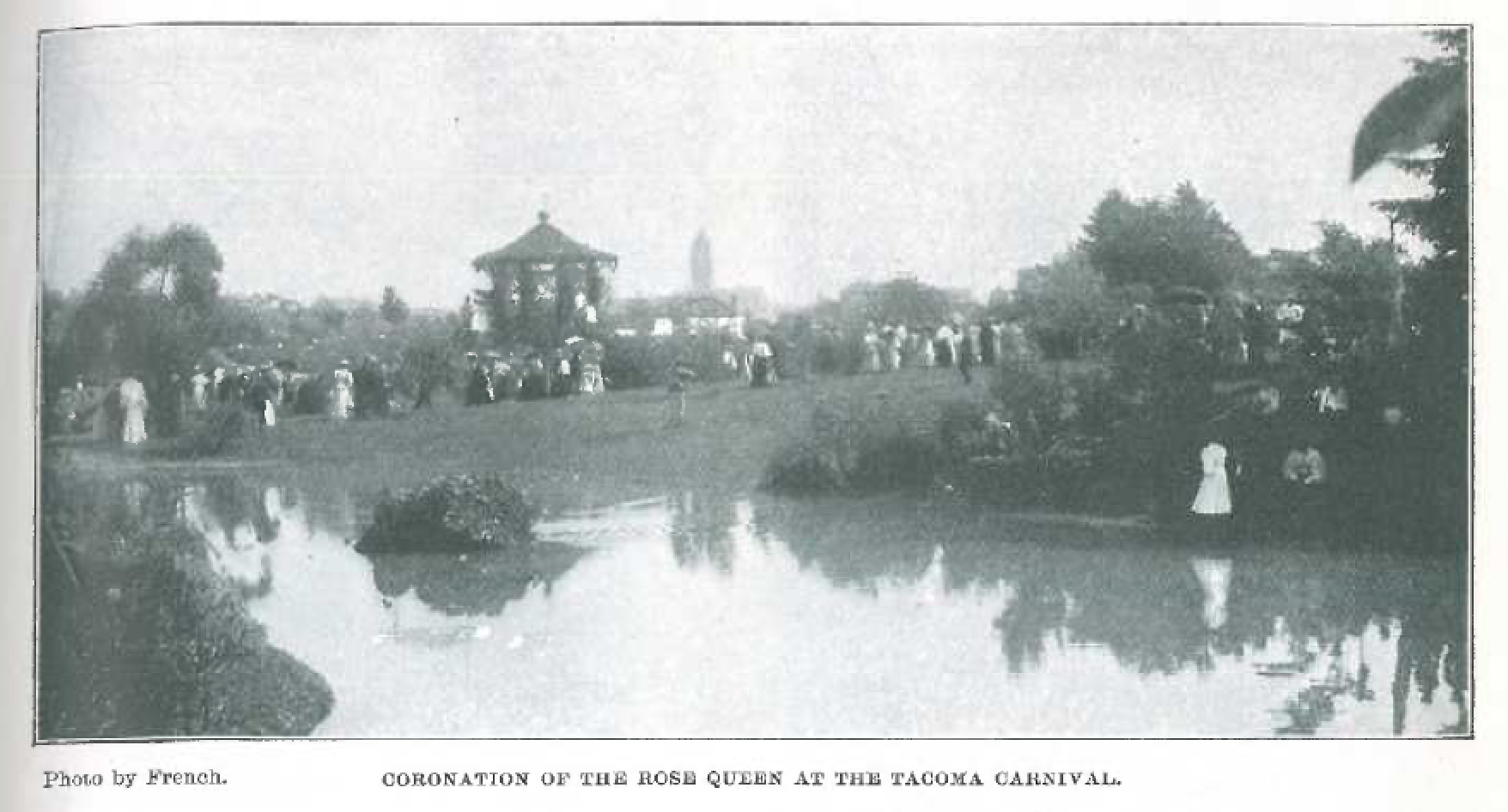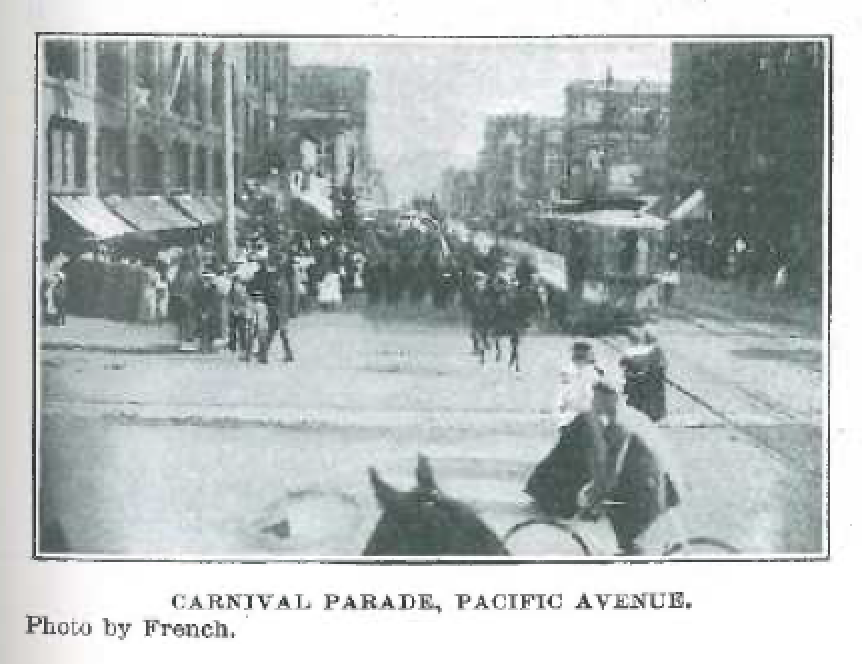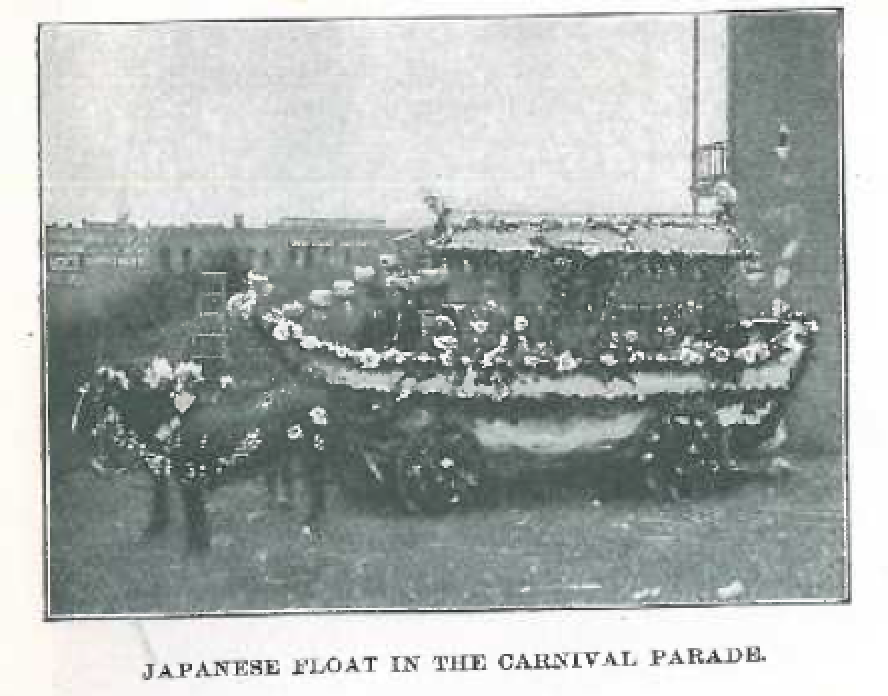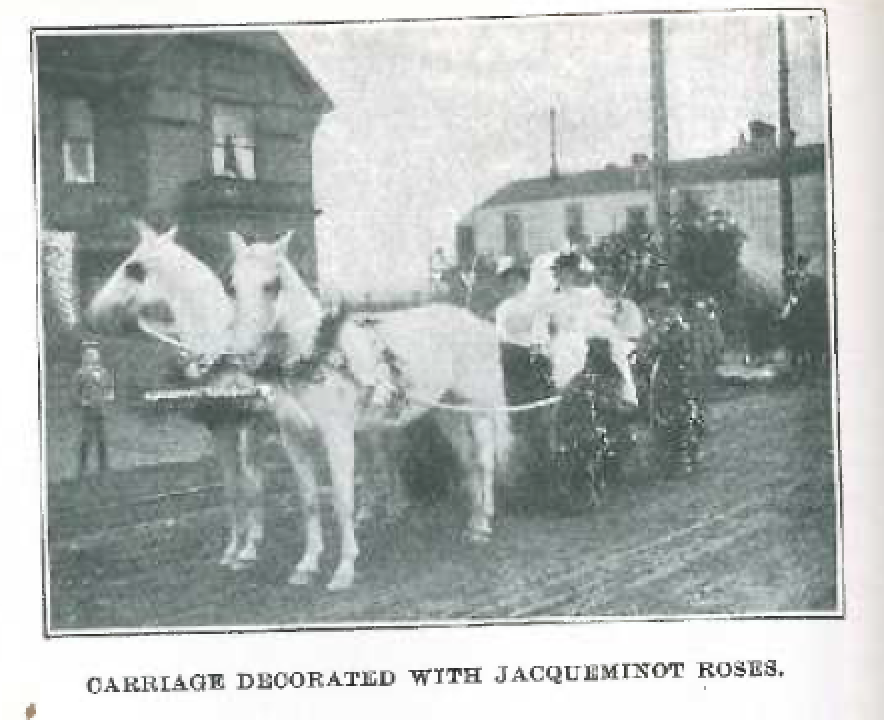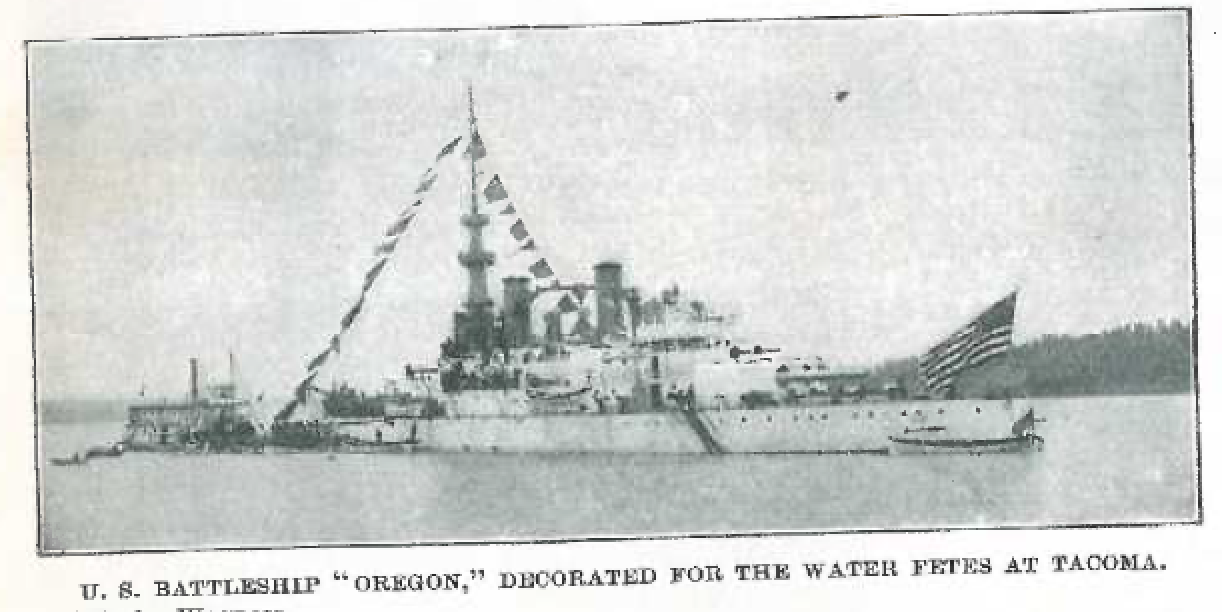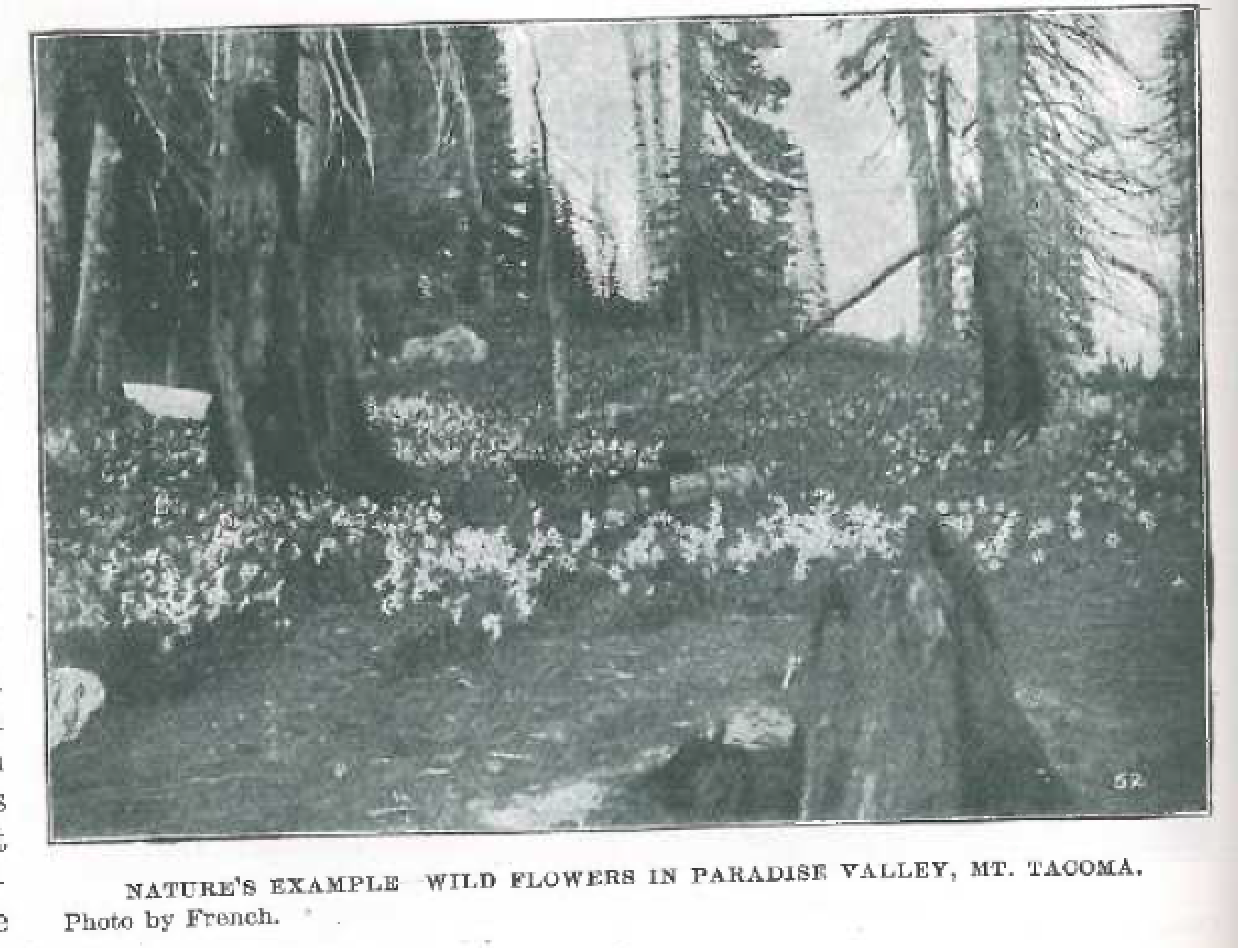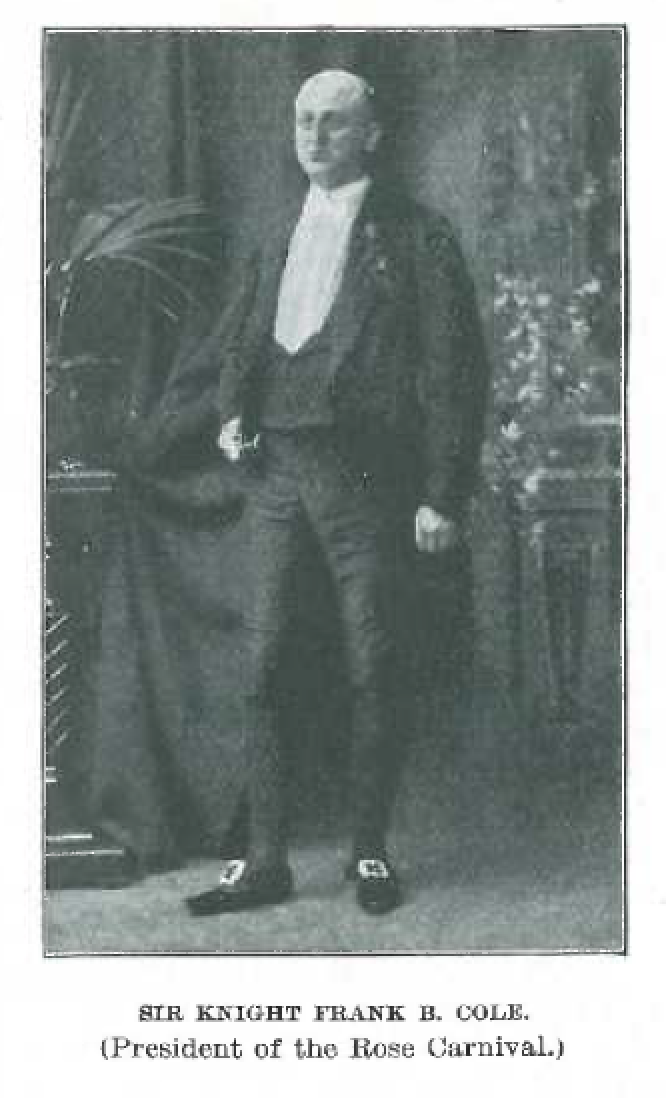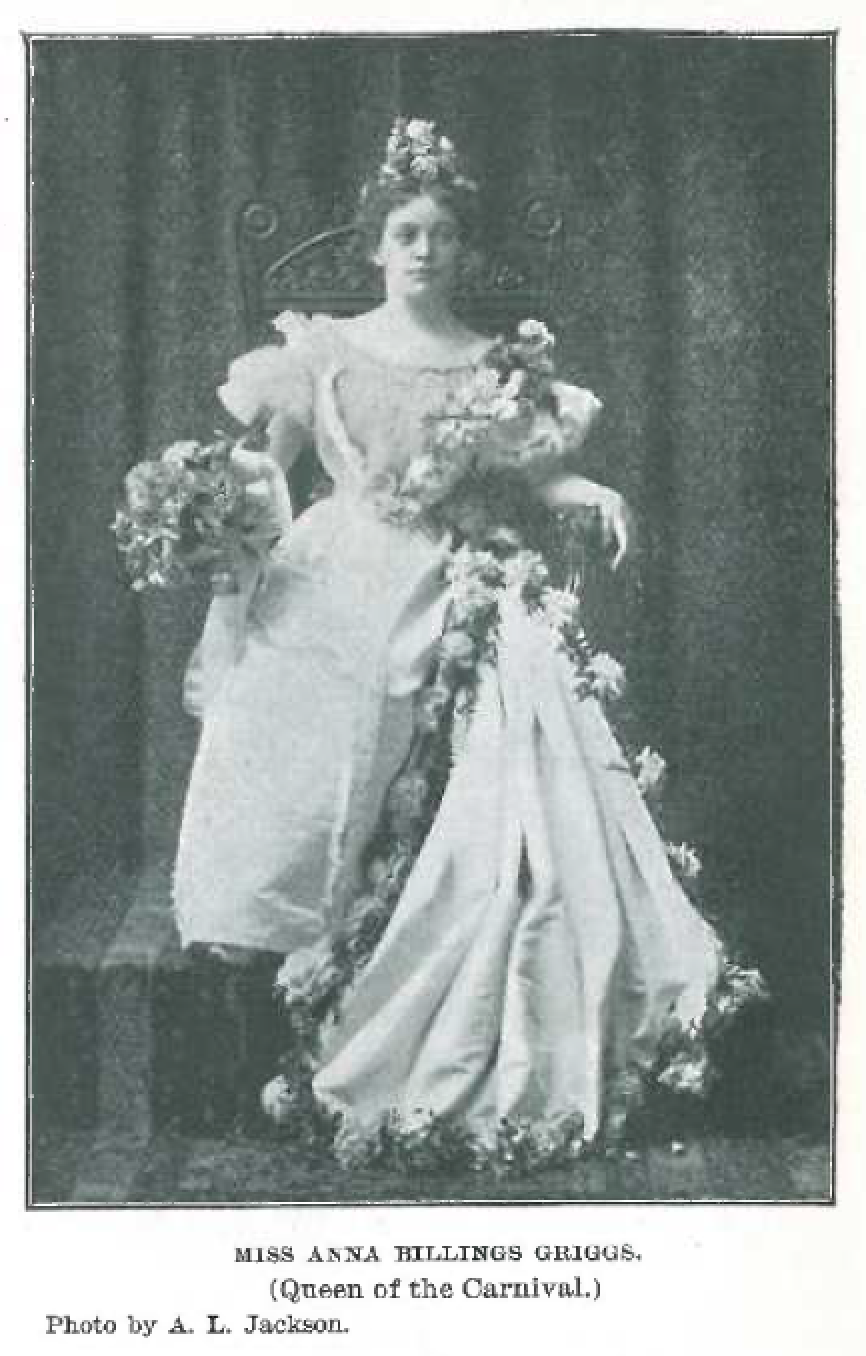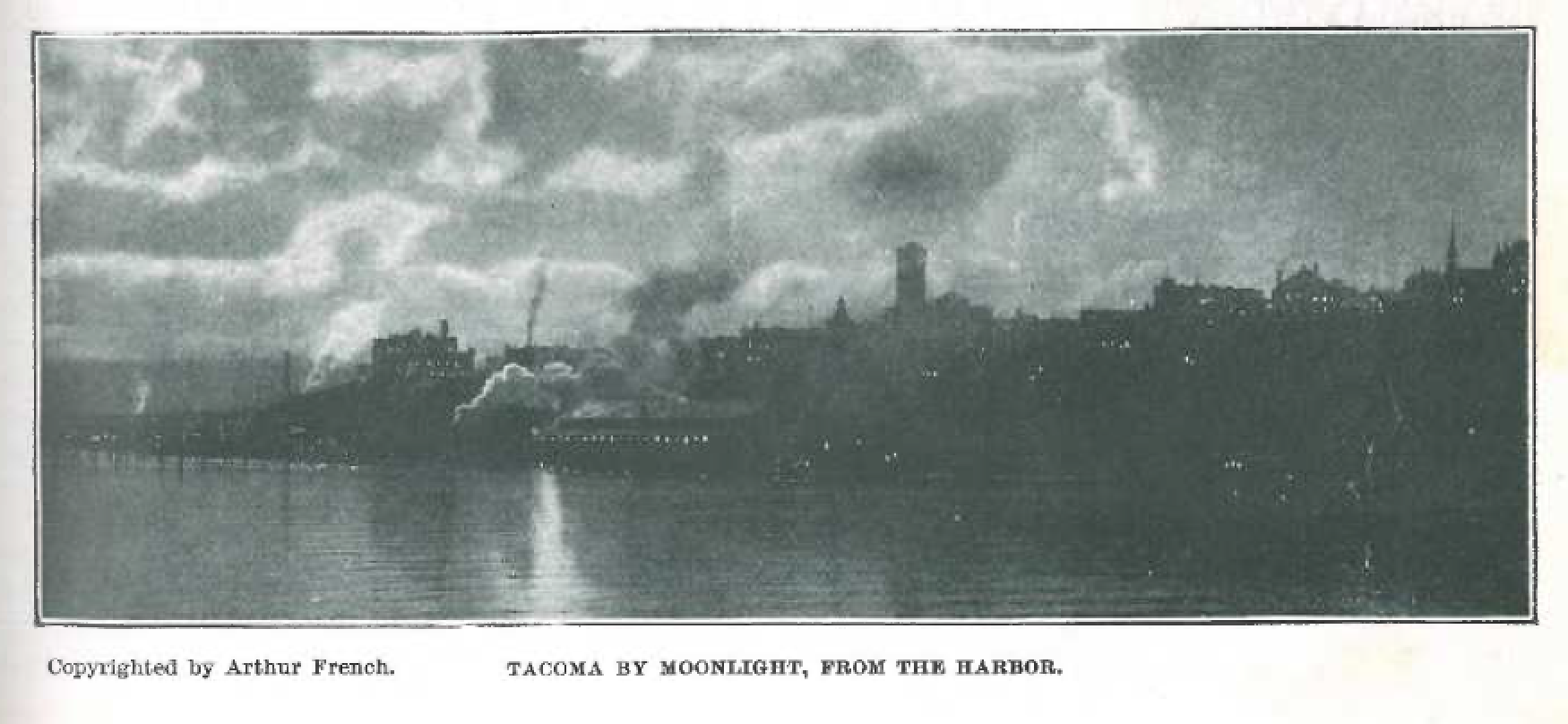|
The idea of a rose carnival on the shores of Puget Sound seems as yet rather incongruous to the world at large. Notwithstanding its high latitude, however, far from being a bare, inhospitable coast where winter reigns in grim supremacy three-fourths of the year, as is too often supposed, Western Washington is peculiarly a land of summer. February opens the season of flowers, and Christmas often finds it in continuance, while the long, delightful months between have fairly rioted in the bloom of every clime except that of the tropics. The native forests are filled with giant elder, red currant, white syringa, rhododendron, honeysuckle, and the snowy plumes of the white Spirea, while the profusion of smaller flowers is so great as to weave a rich mosaic of color over the carpet of emerald moss. Nature has struck the keynote of lavish beauty, and with her as a brilliant and living example, there was no reason why the gardens of man should not contain an even greater variety of plant and shrub. Tacoma, at the head of Puget Sound—the fair young city which takes its name from the grandest peak of the Cascades—deserves a wide fame for its pleasant homes and gardens, and especially for its magnificent roses. Tourists on their way to Alaska must needs carry from Tacoma the memory of terraced slopes planted with roses that rise from the very docks. It was doubtless the success of like undertakings in Californian cities that led Tacoma to venture last year upon a rose carnival. In May there was issued the following greeting: "The City of Destiny salutes you who languish in the stifling summer and perish in the rigorous winter of the East; you who fly from the dread tornado and the terrible blizzard; you who long for Nature in her gentler moods, and for a climate where extremes are unknown. Tacoma is indeed the city of your highest destiny. Under the shadow of our majestic mountain, crowned with eternal snows and shedding perpetual benediction on the favored valley; by the shores of the Northern Mediterranean with its miles of liquid azure; at the edge of the boundless forest, yet untouched by the hands of man, Tacoma extends a welcome to the world and declares a festival in honor of the Queen of Flowers—a gala week—a Carnival of Roses!" July 2, 3, and 4 were days of matchless radiance and beauty. Mrs. Foster, a typical Kentucky belle, was crowned queen of the roses by Governor McGraw. A floral procession three miles long passed in all its splendor before her majesty, each float and carriage laden with roses of every variety. In the evening the theater was transformed into a perfect bower, and a brilliant audience assembled to hear the carnival concert, of which one chief feature was the singing by a class of dusky Indian pupils from the Puyallup reservation. This year has seen the idea expand until the older cities of California have been fairly rivaled. Miss Anna Griggs was the fair girl queen who presided with great dignity and charm. A wreath of jacqueminot roses was placed on her brow by Governor Rogers, and eight hundred school-children sang before her on coronation day. Several companies of the National Guard and the United States marines from the battleship Oregon marched as her escort, and sixteen maids of honor lent the charm of youth and beauty for the day. On the second day the first water fête ever given on Puget Sound was opened, and finished with the impressive ceremony of wedding Tacoma to the sea, modeled on the old Venetian custom—the presence of the fleet of revenue cutters, the Oregon, and three great ocean liners of the Oriental Steamship Company adding much to the pomp, beauty, and interest of the event. |
